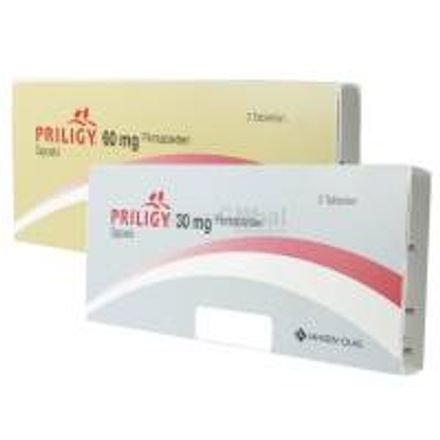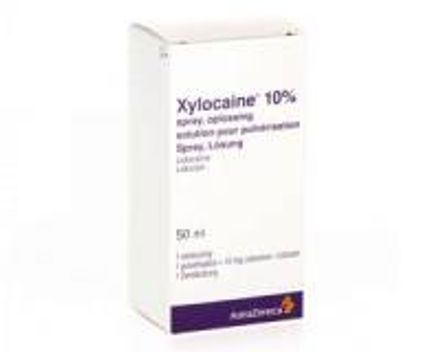Premature ejaculation is when a man orgasms soon after beginning sexual intercourse or before penetration. There are treatments for premature ejaculation.

Premature ejaculation
What is premature ejaculation?
How quickly a man ejaculates can vary massively. On average, men will ejaculate five to six minutes after penetration, although it can vary from one or two minutes to as much as eight minutes. There is no standard rule for it. However, the fact that very different expectations are quoted can lead to a lot of confusion, uncertainty and frustration. Premature ejaculation (PE) occurs when a man ejaculates within a minute after penetration and cannot delay ejaculation.
Treatments
- All treatments
- Prescription medicines
- Non-prescription medicines
- Relevance
- Name A-Z
- Name Z-A
- Price low-high
- Price high-low
How does Dokteronline work?
At Dokteronline, you can get expert advice from doctors quickly, without the hassle of visiting your GP’s surgery. Take care of your health with reliable treatments and information from the comfort of your home.
Select your preferred treatment
The doctor will review your medical request
The pharmacy will ensure your medication is delivered to your doorstep
What are the symptoms of premature ejaculation?
Premature ejaculation occurs if the following characteristics are present:
- If the man has already ejaculated before, or within one minute after vaginal penetration;
- If the man can't slow down ejaculation;
- If there are strong negative consequences, such as stress, annoyance, frustration or even the avoidance of sexual intimacy.
There are no exact figures on how often premature ejaculation occurs because it is often seen as a taboo subject. However, it is estimated that between 3% and 30% of men suffer from premature ejaculation.
Unfortunately, not even ten per cent of men seek help for this, and that is a real shame. It often has a major impact on a couple’s sex life, and people can therefore easily end up in a vicious circle. A good first step is to talk about it. This can be done with your partner, or with a doctor.
What are the causes of premature ejaculation?
For a long time, it was thought that premature ejaculation was purely a psychological problem, but that does not seem to be the case. As with other sexual conditions, it seems to be a combination of factors. Fear and frustration can be a cause, and premature ejaculation can exacerbate these feelings and frustrations. This creates a vicious circle that is difficult to break. Other causes may be physical. For example, there are indications that an abnormality of the neurotransmitter serotonin, which causes signal transmission between nerve cells, may be the cause of premature ejaculation. Thyroid hormones also seem to play a role. For the time being, however, no major studies have been carried out into the physical background of premature ejaculation.
Possible causes could be:
- Infections of the prostate;
- Thyroid disorders;
- Side effects of medicine use;
- Diabetes;
- Hypersensitivity of the male genitalia;
- Being overweight;
- Hereditary problems;
- Emotional problems;
- Stress.
Regardless of the causes of premature ejaculation, there is a good chance that the man, under pressure from his expectations, will become so tense that this alone is sufficient reason for premature ejaculation.
What forms of premature ejaculation are there?
In premature ejaculation, a distinction is made between primary premature ejaculation (men who have always suffered from premature ejaculation) and secondary premature ejaculation (men who previously had normal ejaculation).
How can you recognise premature ejaculation?
It is called premature ejaculation if you ejaculate in less than a minute after penetrating the vagina with the penis (or in the case of anal sex, oral sex or self-gratification), and you have no control over ejaculation. This is not dangerous or unhealthy, it is only a ‘condition’.
Is there anything I can do myself about premature ejaculation?
If medical reasons are excluded, you can try to regain control over your ejaculation yourself. There are various techniques for this, including the start-stop technique and the squeeze technique.
The start-stop technique teaches you, together with your partner, to keep a close eye on your body reactions. This makes it easier to recognise when ejaculation is approaching. Just before the point of the orgasmic reflex, you stop stimulating the penis, which can cause the excitement to sink. When it is ‘safe’ again, and you are no longer about to ejaculate, you can start over again. With this method, you will become better at ejaculation over time and you can also add interesting variations to it.
Another technique is the squeezing technique, in which you squeeze the penis with your thumb and index finger, just below the glans, just before you ejaculate. In most cases, this interrupts the orgasmic reflex.
Finally, you might consider trying to use breathing techniques to learn how to control excitement. This is often more pleasant for the woman than the two previous techniques.
Something we recommend is to try to accept the situation as it is. There is no point in getting frustrated, and it is precisely this tension and frustration that can further exacerbate the problem.
What are the treatments for premature ejaculation?
Medication
There are three ways to deal with premature ejaculation with the help of medication:
- You can use medication to inhibit ejaculation;
- You can use medication to prevent your penis from softening immediately after ejaculation;
- You can use medication to numb the head of your penis so that it is less likely to be stimulated.
Medicines with the effect of slowing down ejaculation
Dapoxetine is an SSRI (selective serotonin reuptake agent) that works for this and is prescribed in the case of premature ejaculation.
Other SSRIs, selective serotonin reuptake inhibitors, also report slower ejaculation. Examples of SSRIs that can be used for premature ejaculation are paroxetine or sertraline. Officially, SSRIs are medicines for depression and anxiety, but you do not need to be depressed or anxious to use them to extend the time from penetrating the vagina to ejaculation.
Medication to prevent the penis from softening immediately after ejaculation
If there is no way to prevent premature ejaculation, or if you cannot or do not want to take SSRIs, you can choose to use a device that prevents the penis from softening immediately after ejaculation. This allows you to penetrate even after orgasm.
You can also opt for an intracavernous injection, in which a dose of papaverine/phentolamine or alprostadil is injected into the penis, or you can choose oral remedies, such as sildenafil, tadalafil or apomorphine.
Products to numb the feeling of the penis
If you prefer not to take medication, if SSRIs do not work, or if you are not allowed to use them for health reasons, you may want to consider a narcotic gel or cream. You should be aware that how these work is uncertain and not scientifically proven.
Use a lidocaine gel or lidocaine/prilocaine cream
Apply it to the head of your penis ten minutes before sex, then remove the gel as you do not want your partner’s vagina to become numb.
An important point - the gel contains an oil that can damage condoms. You will therefore have to choose a different form of contraception.
Alternative treatments for premature ejaculation
You may want to consider behavioural or cognitive therapy. There is often a complex combination of psychological factors, especially in men with secondary premature ejaculation. For example, there may be fear of failure, sometimes due to sexual problems with a (former) partner or relationship problems. Sexological treatment or relationship therapy can help a lot.
Performance pressure due to the expectations created by films and books often makes it even more difficult to control premature ejaculation.
You can also be referred to a urologist. These specialists have various options to treat premature ejaculation at their disposal.
The urologist may perform a short, non-painful physical examination of the penis, scrotum and sometimes prostate to rule out physical abnormalities. In addition, an internal ultrasound of the prostate and testicles can be done. And finally, to exclude thyroid diseases and prostate inflammation, a blood test and possibly a urine test will be carried out.
Once they have the results, the urologist can then work with you to determine which treatment or combination of treatments is best for you. In addition to medication, psychological or sexological help and psychoeducation, pelvic physiotherapy or a combination of different treatment options can also be used.
Lifestyle changes to treat premature ejaculation
Some of the possible causes of premature ejaculation are obesity and stress. It is therefore advisable to adjust your lifestyle to be healthier to tackle excess weight and feel calmer.
Some tips for a healthy lifestyle:
Make sure you get enough exercise
Play sports, take a brisk evening walk. Start with relaxing activities such as dancing lessons, yoga, or meditation.
Do not overload your diary
Keep space free to relax and unwind. Do this to improve your professional life, and also for your social life. Build in sufficient time for rest.
Make sure you take in enough fluid
You may experience both physical and mental fatigue if your body is not properly hydrated. A well hydrated body can dispose of waste products quickly and well, which benefits your digestion.
Adapt your eating habits
Certain foods such as fatty meats, chips, mayonnaise, crisps, sweets and cakes require a lot of energy to process and lead to people being overweight. Eat plenty of fruit and vegetables, so that you also get enough vitamins and minerals.
References
Albert Schweitzer Hospital (s.a.), Ejaculation too soon (premature ejaculation), consulted on 18 May 2019, at https://www.asz.nl/bekkenbodemcentrum/aandoeningen/seksuele-problemen/te-snel-klaarkomen–premature-ejaculatie-/
Nederlands Huisartsen Genootschap (2015), I’m coming too soon (man), consulted on 18 May 2019, on https://www.thuisarts.nl/snel-klaarkomen/ik-kom-te-snel-klaar-man
Hond, Drs. H. de (z.j.), Early ejaculation, causes and treatment, consulted on 18 May 2019, on https://www.andros.nl/erectieproblemen/vroegtijdig-klaarkomen/
Hoogland, A. (2016), Ejaculatio praecox: premature ejaculation, consulted on 18 May 2019, at https://www.gezondheidsnet.nl/erectieproblemen/ejaculatio-praecox-vroegtijdige-zaadlozing Melod (2010), Dealing with premature ejaculation, consulted on 18 May 2019, at https://mens-en-
gezondheid.infonu.nl/seksualiteit/32313-behandelen-premature-ejaculatie-voortijdig-klaarkomen.html Dutch Care Institute (z.j.) Dapoxetine, consulted on 18 May 2019, at https://www.farmacotherapeutischkompas.nl/bladeren/preparaatteksten/d/dapoxetine
Nederlands Huisartsen Genootschap (s.a.), NHG-Standard sexual complaints (first revision), consulted on 18 May 2019, at https://www.nhg.org/?tmp-no-mobile=1&q=node/1772.


